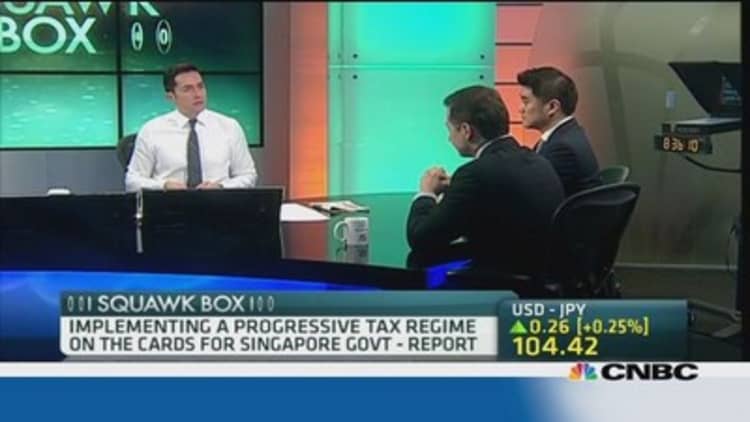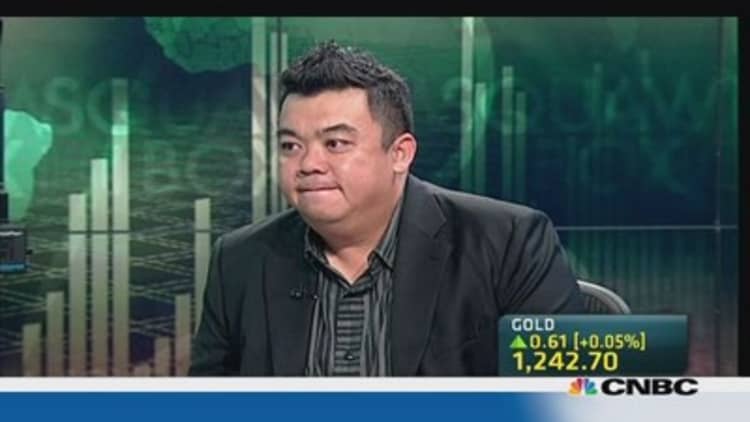
In rich Singapore, higher taxes on cars, property and possibly personal income could be on the agenda in next month's budget as the city state takes steps towards a greater redistribution of wealth.
Economists say the three main themes of the 2013 budget are likely to remain in place this year: raising productivity levels, restructuring the economy and implementing a progressive tax regime.
And the last one in particular is likely to be in the spotlight amid a growing focus on the high cost of living and wide gap between rich and poor in the Southeast Asian financial hub.
(Read more: Cost of living: A worry for young Singaporeans)
"Last year the government planted the idea of transfer pricing -- that means taking a bit more from those who are wealthier," said Seng Wun Song, a regional economist at CIMB. "That theme will continue, but I don't think that they [the government] would raise income tax at the top end too much."
Last year, the government introduced higher property taxes on investment and high-end owner occupied homes. Luxury cars were also taxed more.
Singapore has one of the biggest wealth gaps in the developed world.
Its Gini coefficient – which measures the degree of inequality within a country where zero is complete equality and one is maximum inequality – rose to 0.478 last year, the highest among advanced economies, apart from Hong Kong.
(Read more: Wealth of world's richest equal to 3.5 billion poorest)
The city state, which last month witnessed a rare incident of rioting, also ranks as the world's seventh most expensive city in Expatistan's Cost of Living index, which is compiled from prices submitted by users of its online cost of living calculator. High living costs are a major concern for the young, a survey published last week by Singapore Polytechnic found.
Tax the rich?
Taxing the island's wealthy residents was one of a number of topics discussed on the government's pre-budget feedback forum, one example of how wealth inequality has become a sensitive issue.

"Please milk some monies from the rich and famous to spend on [the] social welfare needs of Singaporeans by taxing people such as new citizens like eminent Jet Li, Gong Li; and well-known PRs [permanent residents] like the co-founder of Facebook Eduardo Saverin," read one such comment on the forum.
Economists say it is a balancing act for the government: showing that it is keen to address wealth inequality while maintaining the country's appeal to foreign businesses on which it relies to fuel economic growth given the local population's aging demographics.
"In the last budget, the government indicated that wealth taxes could start to play a bigger role in terms of financing and more help for those on lower incomes," said Selina Ling, head of treasury research and strategy at OCBC. "They have already started tweaking property taxes and taxes on cars, so we could see more tweaks along these lines. That could be more palatable for now."
Singapore is expected to overtake Switzerland to become the world's biggest hub of offshore wealth by 2020, research firm Wealth Insight said last year.
(Read more: Is Singapore's prized social stability under threat?)
"Singapore is trying to narrow what has been a growing income gap in a way that will not dis-incentivize high earners or workers," said Vishnu Varathan, market economist at Mizuho Corporate Bank.
"There is a feeling that there will be more progressive tax implementation, so there's more differentiation in the tax bracket. There is scope to do more but they don't want to do it in a way that causes high income earners to reconsider how tax friendly Singapore is," he added.
In Singapore, the top individual income tax rate is 20 percent – much lower than in many other developed economies. In Japan for instance, the highest income tax rate is 50 percent.
There's also likely to be supportive measures for those on lower incomes, analysts said. Earlier this month, Singapore moved to set an entry-level minimum wage of S$1,000 for its cleaners.
The budget will be delivered by Singapore's Finance Minister Tharman Shanmugaratnam on February 21.
— By CNBC.Com's Dhara Ranasinghe; Follow her on Twitter @DharaCNBC


